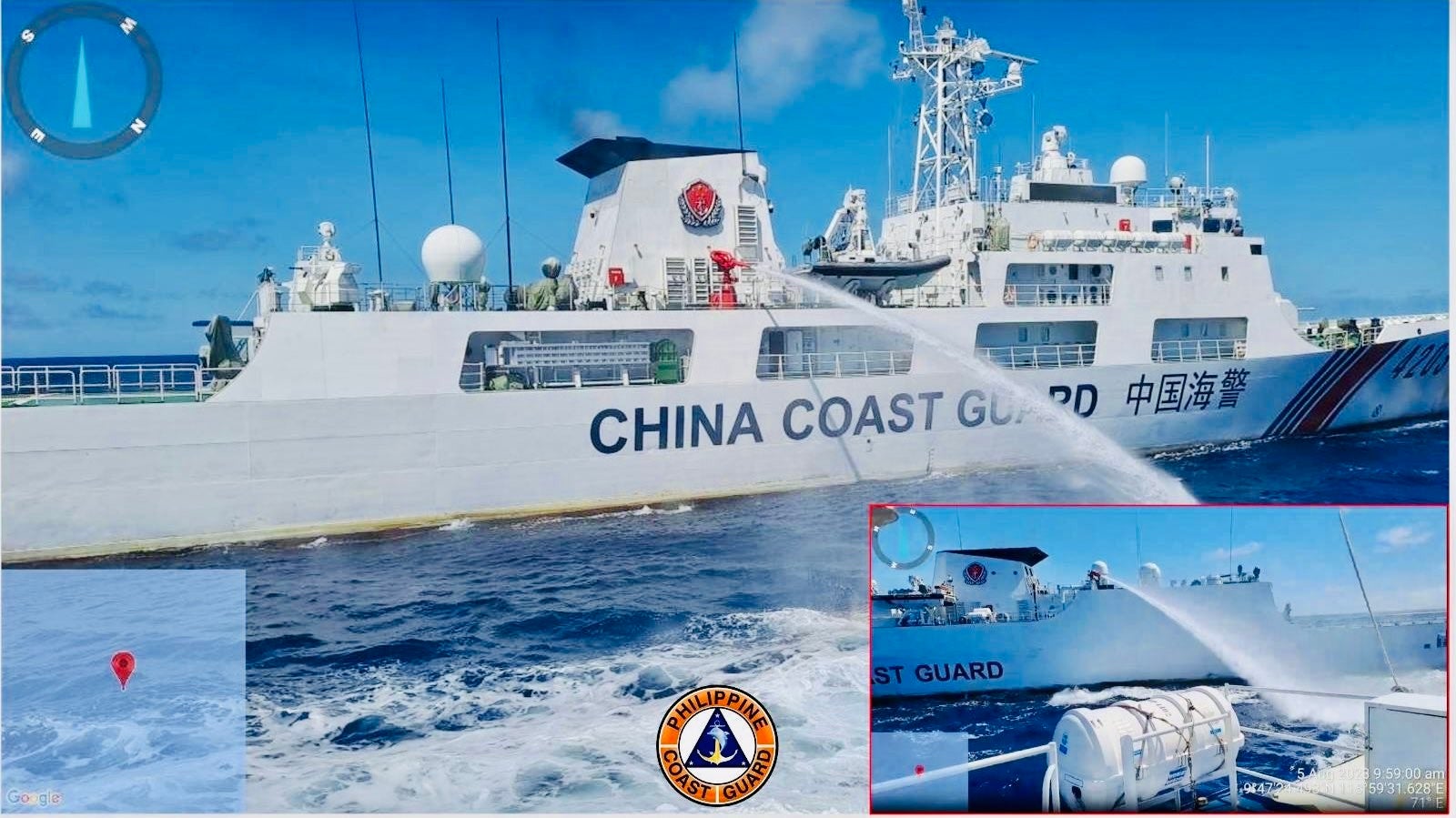The August 5 incident, where a Chinese coast guard’s ship water cannoned a Filipino ship going to supply the armed forces personnel manning a contested shoal, has pushed the US over the brink.
Over the weekend, US, Australian, and Philippines forces conducted a joint wargame simulating the retaking of an island in the South China Sea.
The brazen signaling comes after China upped its ante in the South China Sea. The US armed forces are underscoring that the Chinese aggression, including using water cannons against the Philippines vessel, needs to be “challenged and checked.”
As the three countries’ forces are undertaking a joint exercise, the Commander of the US Navy’s 7th Fleet was in the Philippines and met with Vice Admiral Alberto Carlos, the head of the Philippine Western Command overseeing the South China Sea.
Vice Admiral Karl Thomas told Reuters: “You have to challenge people, I would say operating in a grey zone. When they’re taking a little bit more and more and pushing you, you’ve got to push back; you have to sail and operate.”
The Seventh Fleet of the US Navy, headquartered in Japan, is the largest of the forward-deployed fleets. It operates as many as 70 ships, 150 aircraft, and over 27,000 sailors. It covers an area of 124 million square kilometers from bases in Japan, South Korea, and Singapore.
More than 2,000 Australian and Philippine defense personnel and US Marines are participating in the wargames that incorporate amphibious landing and air assault drills.
Two Australian Navy vessels, HMAS Canberra and HMAS ANZAC and the Philippines Navy, are also participating in the exercise. The drills will occur in different training locations in the Northern Luzon Command and the Western Command from August 14-31.

The wargames involved troops arriving in amphibious assault vehicles, by parachute, and on-board US Osprey aircraft to storm a beach. Two advanced Australian F-35 fighter jets provided close air support, and Australian warships secured the surrounding waters.
Australian defense minister Richard Marles is observing the drills with Filipino President Ferdinand Marcos Jr. Marles, who has pledged to start joint maritime patrols in the heavily contested South China Sea in a significant pushback to China.
“It is an important aspect of how we prepare for any eventualities, considering there have been so many events that attest to the volatility of the region,” Filipino President Marcos said.
Australian Prime Minister Anthony Albanese will visit the island nation in September with maritime issues, defense, and security on the agenda.
In 2016, the international tribunal in The Hague declared the ‘nine-dash line’ invalid and a violation of the UN Convention on the Law of the Sea (UNCLOS). China, refusing to accept the ruling, continued militarizing the islands, and its militia continued to harass the Philippine vessels. While Manila has UNCLOS on its side, its military weakness in the face of a formidable foe has not gone unnoticed.
That is why the Marcos administration, since taking office in June 2022, has been fortifying its defense and strategic ties with the US, Australia, Japan, and India (the Quad countries). During his US visit in May, Marcos and US President Joe Biden agreed to new guidelines on the countries’ 1951 Mutual Defense Treaty.
The US reiterated that it would aid the Philippines in the event of an attack on it anywhere in the South China Sea. The guidelines also acknowledged the threats posed by “grey zone tactics” employed by China. In return, the Philippines agreed to add four more military bases that the US could access.
Sticking to its commitment, a US Navy plane flew overhead as two Philippine boats breached a Chinese coast guard blockade to replenish food and other supplies to its forces guarding a contested shoal.
While the Filipino government was dallying with the US, it was also strengthening its ties with Australia, which has commercial and strategic interests in the South China Sea.
Australia and the Philippines in May elevated their relationship to a “strategic partnership.”
After the water canon incident, Australia, Japan, and the Philippines conducted joint patrolling in the South China Sea. The US Navy could not join as planned.
The Philippines has also signed an unprecedented Memorandum of Understanding with the Indian Coast Guard that will, besides other things, include sharing information in the Indo-Pacific.
The Philippines is also modernizing its armed forces. It has placed an order for supersonic cruise missile BrahMos. It is also scouting for its first submarine and has shown interest in the Indian-made Advanced Light Helicopter MK-III and Indian warships.
- Ritu Sharma has been a journalist for over a decade, writing on defense, foreign affairs, and nuclear technology.
- She can be reached at ritu.sharma (at) mail.com